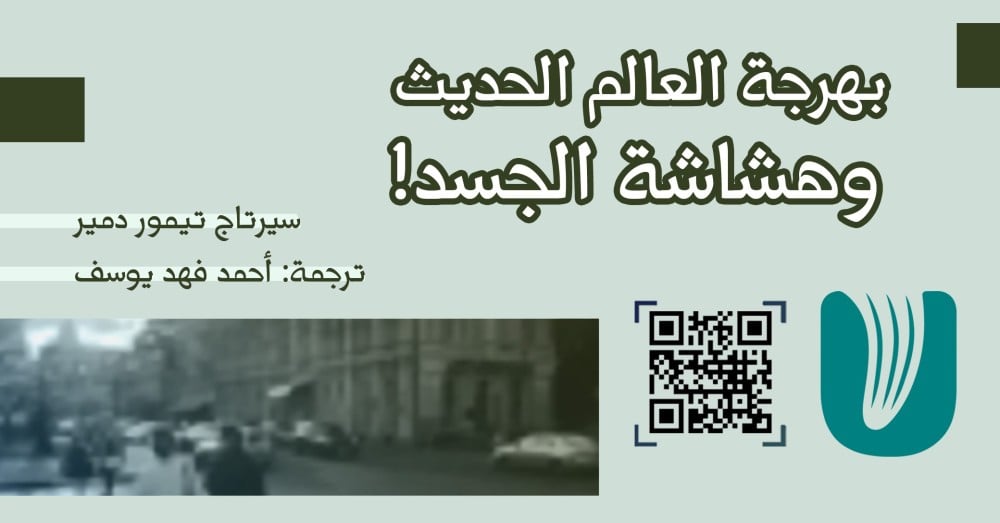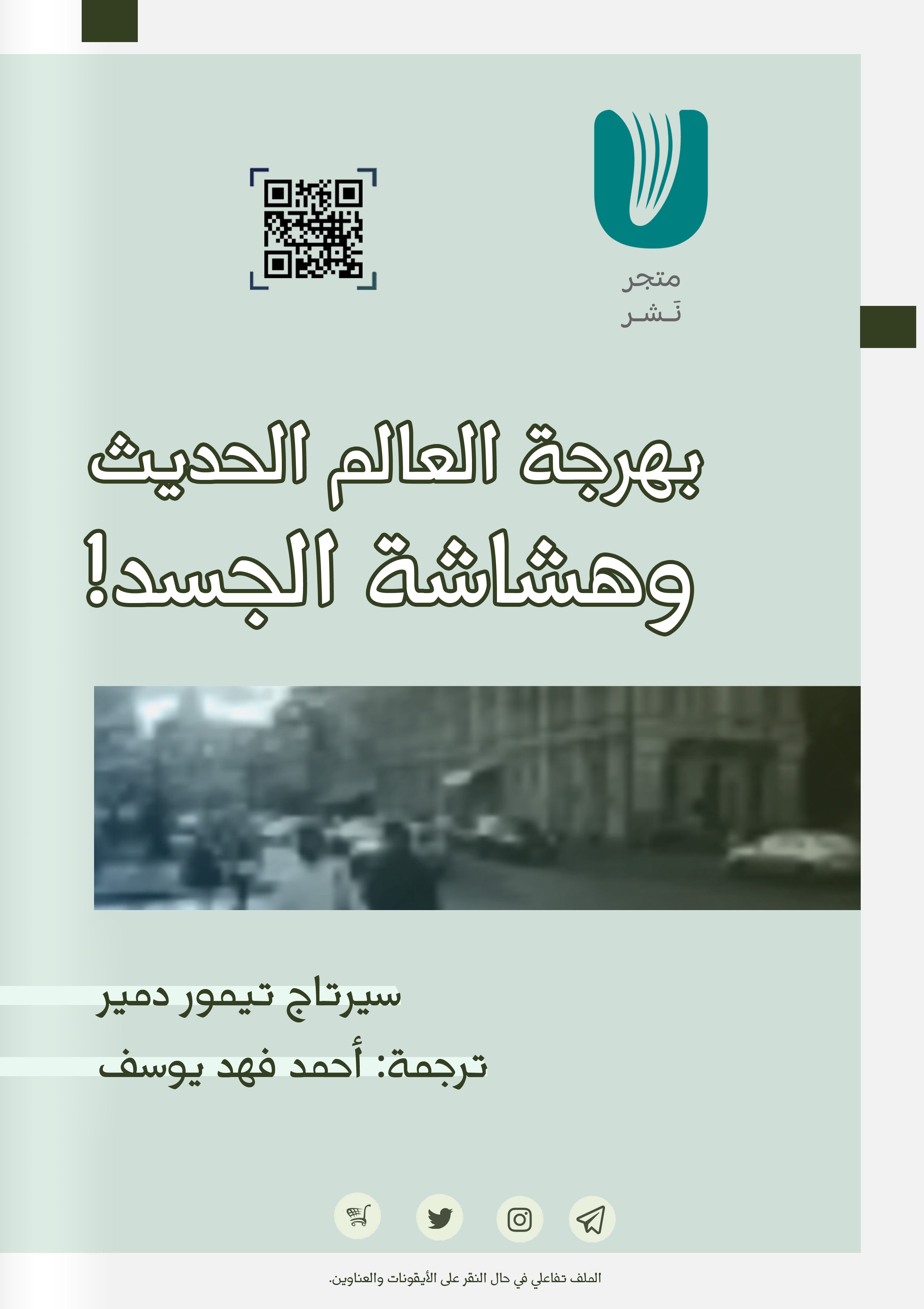The glamor of the modern world and the fragility of the body!
Sartaj Timur Demir
Translation from Turkish:
Ahmed Fahd Youssef
In the era of self-sport, fitness referred to politeness and sophistication, and to the fairness of the complexion, rather than being a marketable appearance, but today, thinness has replaced fitness, and has come to indicate the freedom of the person who acquired it, self-confidence, and his high status. The veil of clinging to the physical, which in the past was a confinement to the soul, has today developed into an obsession with tightening the body in accordance with ideal sizes. Being fat is ugly, lazy, and worthless, but this rule depends on the present time and is subject to cancellation at any moment.
The state of obesity in which marginalized souls appear in unhappy bodies shows us how modern society is based on fatal gratification [1] . Since obesity expresses excess weight, it is a basis for drawing the lines that define the ideal body model. Modernity has produced the fat individual and his curse. A fat person, even if he eats what is considered necessary for life from a medical point of view; He lives face to face with death, which is why diet is presented as an antidote to mortality:
“The health, diet, treatment methods, youth and softness surrounding the body, the obsession with masculinity and femininity, methods of caring for the body, systems and experiments that involve risks, and the discourse of wishes surrounding the body - all of this testifies to the body becoming a means of salvation in our present time. And in this way The moral and ideological task: the body has literally replaced the soul” [2] .
The first and most important duty that falls upon the new contemporary individual is to devote his material capabilities, energy, and time to physical ideals, to make his body a path to freedom, and to transform it into a model that can be designed and shared.
This condition turns every corner of life into an exhibition of the body. It creates identical individuals due to their desire and effort to appear, and their focus on their bodies, as they eat at pre-determined times, foods whose calories have been carefully calculated, then they walk on the treadmill and have their weight measured, then they assume moods based on the progress they make, and here the scale goes beyond its role of being A simple tool for body weight to become a measure of happiness. Individuals and Weight Watchers quickly notice that they gain weight beyond ideal body standards, as every gain is considered a disgrace in society. According to Bauman, these watchers, who are small parts compared to the whole, sing the same song in a unified tone, as if they were a monophonic choir. [3] , They are more like hermits who follow one religion and practice common rituals - rituals for weight loss and raising morale - on a common ground, and they pay allegiance to the menus and programs presented to them with complete surrender and submission. They do not meet to eat, but rather to not eat.
The fact is that in earlier times, eating carried meanings and hints about the group, and was not just a habit or an arbitrary act. It was an effort to integrate into social life, and to compensate for the hours that [the individual] spent in isolation from it, but the individualism of contemporary culture has created gaps of division, separation, and isolation [4]. ] . This eating pattern, which was matched by collective misunderstanding, was later accompanied by this avoidance even of tables, then rooms, and now in homes. Despite any strategy focused on the body that encourages contemplation of the environment and living according to it, it isolates its owner in physical orientation, and the body tends to increasingly strengthen its centrality to the individual’s sense of identity [5] .
Life today is no longer an activity merely for or against the body; Rather, it became within him and with him, and this reversal coincides with the contemporary discourse of freedom, which ignores all other values and conditions, and freedom - like the body today - is nothing but a state of fugue with no path, no counter-metaphor [6] , and it was abandoned. Her reins in her hand swallow everything inside her to the utmost level of superficiality. The body, which has gone from being a means of spiritual education to expressing psychological satisfaction, has encompassed all the standards and needs of the metaphysical world.
The body sums up the fragility and turmoil of the modern world and its attractive glamor. This presentation makes it clear that the world outside the body is steadily diminishing, and for those who resist it, their living space is narrowing day by day.
The most ironic irony of relieving the body of all forms of restrictions in order to achieve freedom is; It is to reduce this freedom to the image of the naked body, and this paradox includes the idea that the demand for freedom of the body can be expressed through nudity, meaning that the expression of freedom lacks the expression of skin. This lascivious behavior - which has replaced literature and rhetoric - is evident in countless festivals and rebellious events in which the themes of the body and freedom are dealt with, but the body adapted to travel is erased whenever it is seen; Because the constant renewal of nudity, which has become a semiotic symbol, plunges the body into the depths of all-consuming illusion. This scandalous obscenity can be likened to the incomprehensible shouts of a person who has no words to express what is inside him; The louder his voice, the more ambiguous he became.
ــــــــــــــــــــــــــــــــــــــــــــــــــــــــــــــــــــــــــــــــــ
[1] Jean Baudrillard, Symbolic Exchange and Death, Sage Publications, 1993, p. 32. (Simgesel Değiş Tokuş and Ölüm, Boğaziçi Yay., 2016)
[2] Jean Baudrillard, The Consumer Society: Myths and Structures, Sage Publications, 2004, p. 105. (Tü Toplumu, Ayrıntı Yay., 2017)
[3] Zygmunt Bauman, In search of politics. Polity Press, 1999, p. 46. (Siyaset Arayışı, Metis Yay., 2013)
[4] The word “gettolaşmış isolation” was originally derived from the word (getto), which means apartheid areas or neighborhoods in cities, and it originally referred to the Jewish neighborhoods in some parts of Europe. (The translator).
[5] 7 Chris Shilling, The Body and Social Theory. London, Sage Publications, 1993, p. 1
[6] That is, the concepts of freedom and the body are no longer a reaction to an opposing prevailing discourse. Rather, they have become distorted and have become expressions of a distraction without a bridle to bind them. Meaning: they are ideas that no longer have an opposing “other” whose features are determined relative to it. Rather, they have become a chaos that includes one thing and its opposite. . As Professor Mustafa Hindi informed us. (Editor).
Click here to access the full book page.
Click on the image to access the image version (pdf), which can be downloaded and published.


